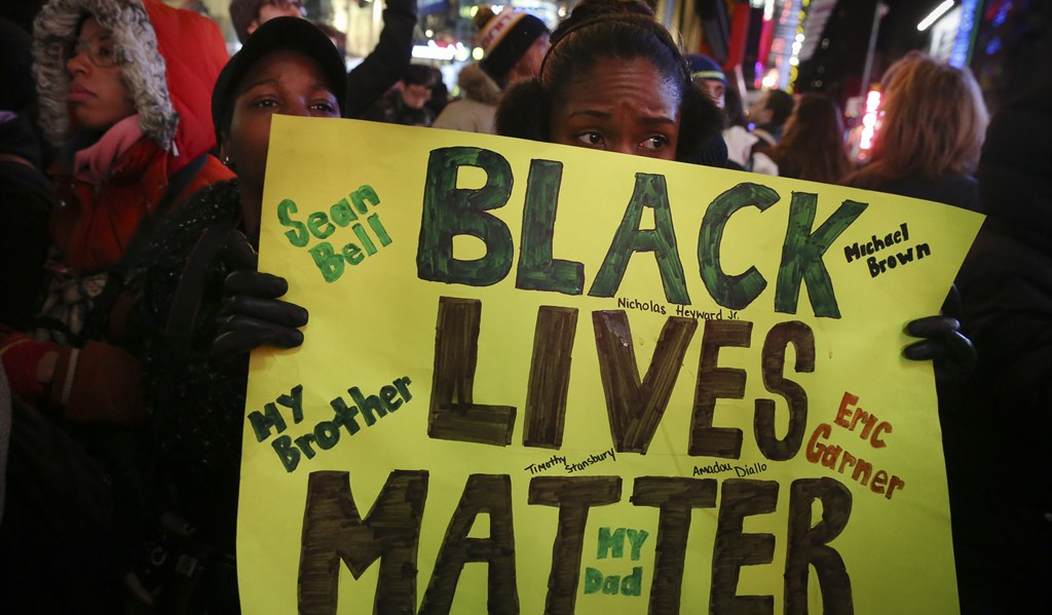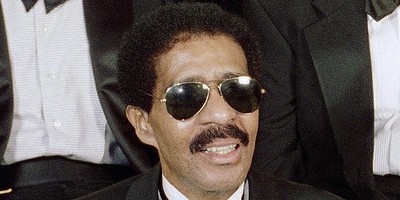This is not just a favorite theme of overt bigots and Internet trolls. It's the view of Rudy Giuliani, the former New York mayor and Republican presidential candidate, and many other whites.
Black-on-black crime "is the reason for the heavy police presence in the black community," he asserted on NBC's "Meet the Press." "So why don't (they) cut it down so so many white police officers don't have to be in black areas?"
In this view, African Americans have only themselves to blame for the presence and behavior of cops in their neighborhoods. If they would get serious about cleaning up the problems in their own communities, police would not be arresting or killing so many black people.
There's an element of truth to this line of argument. Violent crime rates are far higher among blacks than among whites and other groups. One reason cops have a disproportionate number of interactions with African-American males is that these men commit a disproportionate number of offenses.
Where the argument fails is in its assumption that blacks are complacent about these realities and that whites are blameless. The gist of the message is that blacks created the problem and blacks need to solve it.
But the problem didn't originate recently. In 1958 -- a time of lynchings, universal discrimination and legal segregation -- Time magazine reported that in big cities, the "biggest and most worrisome problem is the crime rate among Negroes" and said Negro leaders and civil rights groups should start "accepting responsibility in an area where they habitually look the other way."
Recommended
The common impulse of whites, then and now, was to blame blacks for pathologies that whites played a central role in creating. Criminologist Charles Silberman wrote in 1978 that "it would be hard to imagine an environment better calculated to evoke violence than the one in which black Americans have lived." Pretending black crime is a black-created problem is like pretending New Orleans never got hit by a hurricane.
The Giuliani view omits some vital facts. The epidemic of unarmed blacks being killed by police comes not when black crime is high but when it is low. Homicides committed by African Americans declined by half between 1991 and 2008.
Since the early 1990s, arrests of black juveniles have plunged by more than half. In New York City, where Eric Garner was killed by police, the rate of homicides by blacks is down by 80 percent. In Chicago, where most murders are committed by African Americans, the number last year was the lowest since 1965 -- and this year's could be lower yet.
What is also easy to forget in the denunciation of black crime is that the vast majority of blacks are not criminals. In any given year, less than 5 percent of African Americans are involved in violent crime as perpetrators or victims. The fact that blacks make up a large share of the violent criminal population gives many whites the impression that violent criminals make up a large share of the black population. They don't.
Why don't more blacks living in bad neighborhoods learn to behave like sober middle-class suburbanites? One reason is the shortage of stable families, steady incomes, good schools and safe streets. If you grow up with those advantages, it's relatively easy to do the right thing. If you don't, it's a lot harder.
People trapped in a poor and dangerous slum can't depend on the authorities to keep them safe. They face serious threats every time they leave home. But a young black man who packs or uses a weapon to protect himself against gangs is committing a crime. Even motivated, well-intended kids can wind up in jail.
Crime and poverty create a vicious cycle: A child raised in a chaotic environment is not likely to learn the habits that foster success. Black children afflicted with these disadvantages often take the wrong path as teens or adults. And when they turn out badly, people like Giuliani act as though whites bear no responsibility.
Conservatives are right to say that many of the problems afflicting black communities grow out of lamentable conditions in black communities. Their mistake is thinking that's the end of the discussion. It's only the beginning.

























Join the conversation as a VIP Member